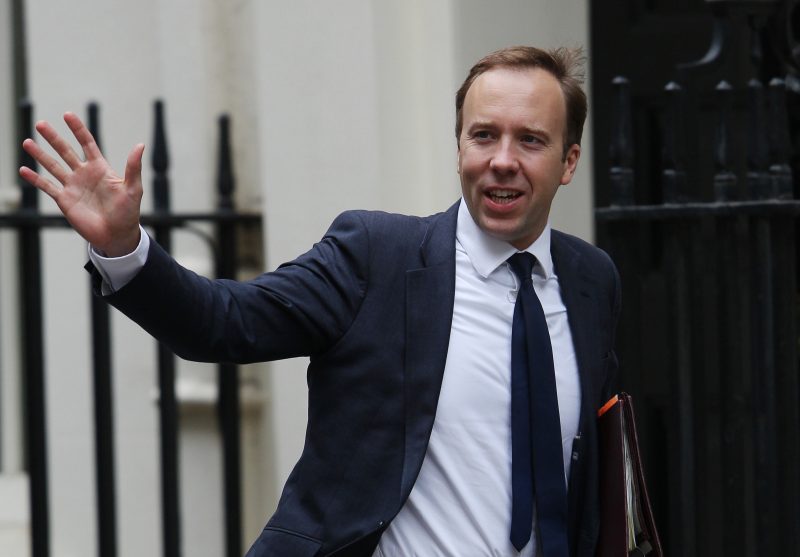On January 15 the Johnson government tabled the NHS Long Term Plan Funding Bill which they argue will “protect in law” an extra £33bn every year by 2024 for the NHS to transform care. Labour unsuccessfully attempted to move an amendment to increase the amount of money. The sum on offer is clearly not enough.
The official press release states that “The bill will contain a ‘double-lock’ commitment that places legal duty on both the Secretary of State and the Treasury to uphold this minimum level of NHS revenue funding over the next 4 years.”
However there are concerns among sharper-witted observers, such as the Nuffield Trust’s Sally Gainsbury, that the amount of money being guaranteed is stated in cash terms only, and can therefore be vulnerable to inflation.
Indeed, as we have pointed out in the Lowdown, when it was first announced the £33.9bn figure was stated by Theresa May’s government to be equivalent to £20.5bn in ‘real terms’ by 2024.
Wilfully misleading: Claims of £33.9bn extra spending inflate value by 65%
It seems that the legal “lock” is also a means of preventing any higher sum being allocated – in other words the “minimum level” is also the maximum – making it certain that NHS services will continue to decline for lack of resources over the next five years.
New legislation
There also appear to be some doubts over the extent to which the new government will carry through the legislation called for by NHS England to create a legal framework for their so-called “integrated care systems” in the Long Term Plan.
Early last year NHS England attempted to enlist public support for proposals to scrap compulsory competitive tendering, the “Section 75” measures and regulations.
Even while they promoted these changes, NHS England continued to drive through a range of tenders and outsourcing of services including hi-tech scanning services, making it clear that their plan was still completely consistent with further fragmentation and privatisation of selected services.
It has been clear from the outset that to get rid of some of the unwanted baggage of the 2012 Health and Social Care Act and pave the way for various so-called “integrated” bodies would require legislation, which Theresa May’s ministers and subsequently Johnson have until now appeared to accept.
However despite the high hopes of NHS England bosses and the apparently categorical promise in the Conservative Party Manifesto that “Within the first three months of our new term, we will enshrine in law our fully-funded, long-term NHS plan,” the notes to the Queen’s Speech are much less clear cut.
Evasive
Under the heading “DELIVERING THE NHS LONG TERM PLAN” the wording is vague and evasive, stressing the need for “thorough consideration”:
- In September 2019 the NHS published a set of recommendations for legislative changes that would enable the NHS to go faster and further in realising the ambitions set out in the 10-year NHS Long Term Plan.
- The Government welcomes the NHS’s leadership of this work, and all the input from people across the health and care system and is committed to supporting the implementation of the NHS Long Term Plan.
- The Government is considering the NHS’s recommendations thoroughly and will bring forward detailed proposals shortly. This will include measures to tackle barriers the NHS has told Government it faces.
- This will lead to draft legislation that will accelerate the Long Term Plan for the NHS, transforming patient care and future-proofing our NHS.”
Whether this legislation, when it eventually takes shape, will go as far or as fast as NHS England is hoping remains to be seen.
The knighthood in the New Year Honours for NHS England boss Simon Stevens, despite five years of constantly declining performance of the NHS, might suggest ministers are favourably disposed to his proposals.
Providers and Royal Colleges speak out as NHS performance falls to its worst ever level
Or it might be a sign that the HSJ was right last summer to suggest Stevens may be planning to step down in the second half of this year, and this is paving the way for his departure before another set of his plans begins to unravel.
Dear Reader,
If you like our content please support our campaigning journalism to protect health care for all.
Our goal is to inform people, hold our politicians to account and help to build change through evidence based ideas.
Everyone should have access to comprehensive healthcare, but our NHS needs support. You can help us to continue to counter bad policy, battle neglect of the NHS and correct dangerous mis-infomation.
Supporters of the NHS are crucial in sustaining our health service and with your help we will be able to engage more people in securing its future.
Please donate to help support our campaigning NHS research and journalism.


